Giant Steps is an innovative educational and therapeutic program for individuals living with autism. We take pride in offering specialized programming to enrich the daily lives of each student and/or young adult with autism.
Program Details
Wellness & Life Skills
By developing and honing wellness skills, autistic adults can enhance overall wellness, effectively manage their health, and lead fulfilling lives. Ongoing support, guidance, and access to resources tailored to individual needs are essential for promoting wellness and health within the autistic community.
Wellness & Health:
Wellness & Health: Autistic adults benefit from various skills to support their wellness and health. Some of these include:
- Self-Regulation: Developing strategies to manage sensory sensitivities, emotions, and stress levels promotes emotional well-being and overall health.
- Self-Care: Learning and practicing personal hygiene routines, such as bathing, grooming, and dental care, supports physical health and hygiene.
- Healthy Eating Habits: Acquiring knowledge about nutrition, meal planning, and portion control helps maintain a balanced diet and supports physical health.
- Physical Activity: Regular exercise, such as walking, swimming, or yoga, promotes physical fitness, strength, and overall well-being.
- Sleep Hygiene: Establishing a consistent sleep schedule, creating a relaxing bedtime routine, and creating a comfortable sleep environment promotes restful sleep and supports overall health.
- Stress Management: Learning stress-reduction techniques, such as deep breathing, mindfulness, or relaxation exercises, helps manage stress and promotes mental well-being.
- Social Support: Cultivating supportive relationships with friends, family members, or support groups provides emotional support, reduces feelings of isolation, and promotes mental health.
- Health Literacy: Understanding basic health information, such as how to access healthcare services, advocate for medical needs, and manage chronic conditions, promotes self-advocacy and empowers individuals to take control of their health.
- Routine Healthcare: Establishing regular medical check-ups, vaccinations, and screenings, as well as seeking timely medical attention when needed, supports preventive care and early intervention.
- Mindfulness and Self-Awareness: Practicing mindfulness techniques and increasing self-awareness of thoughts, feelings, and bodily sensations promote emotional resilience, self-compassion, and overall well-being.
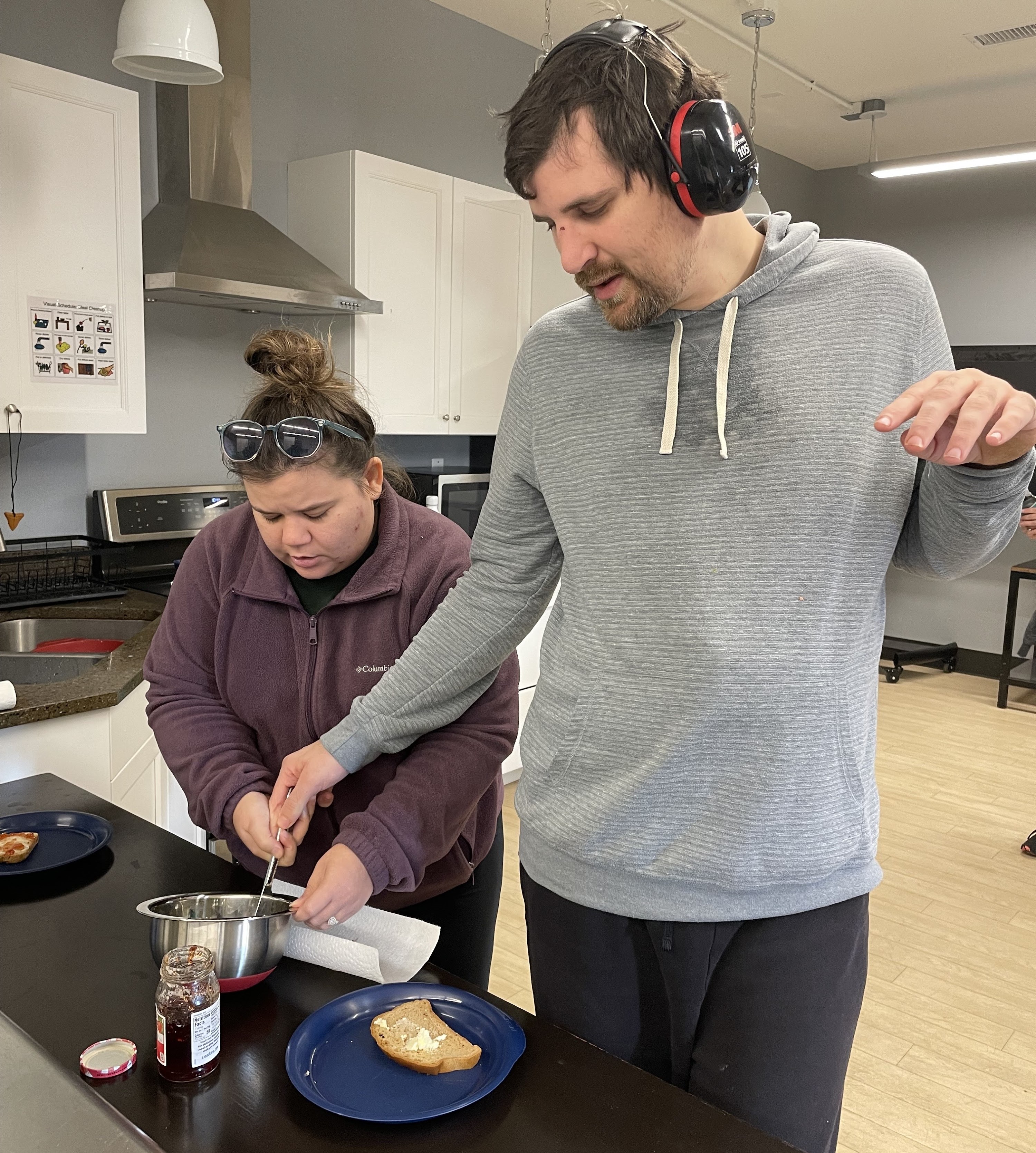
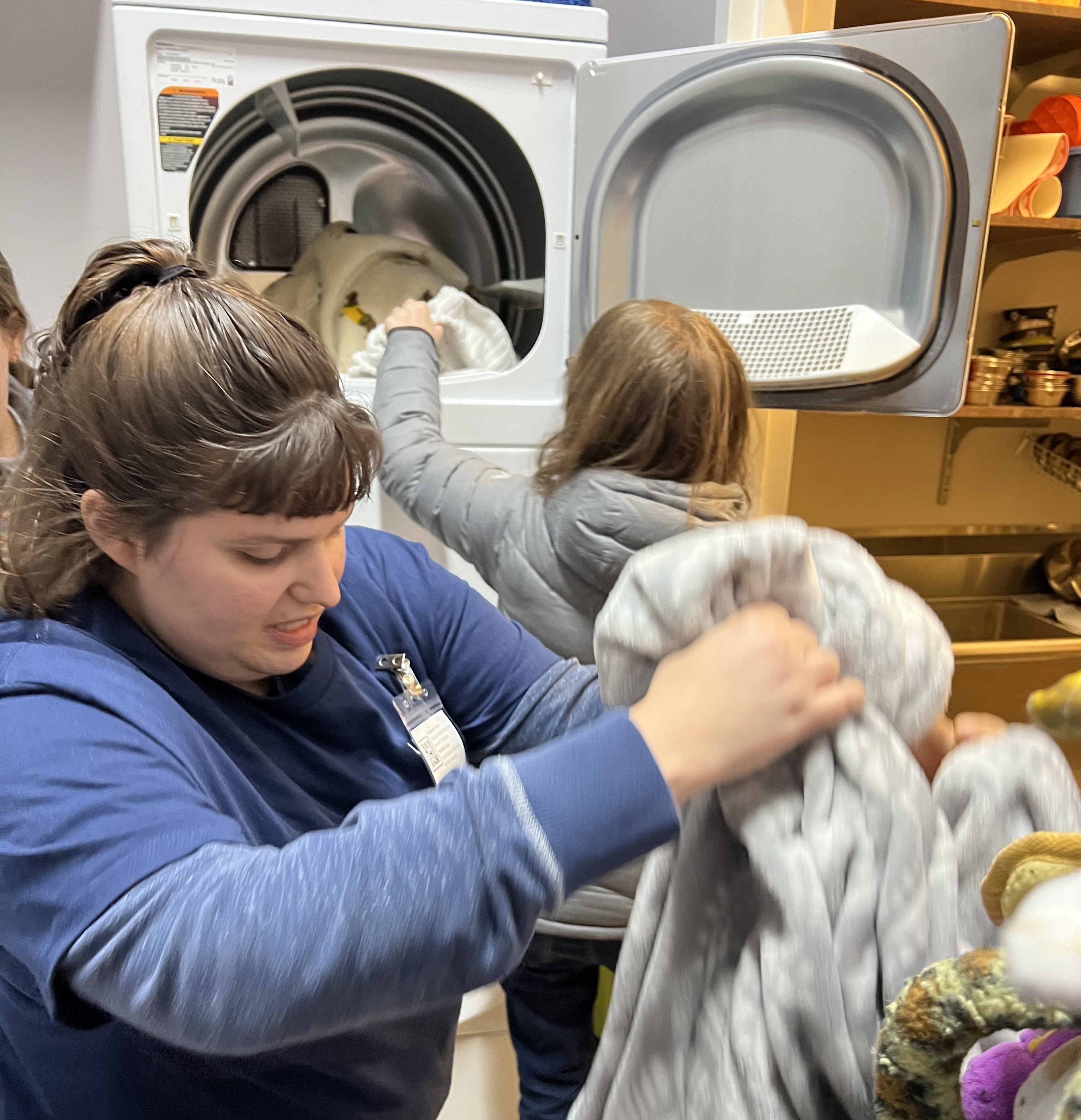
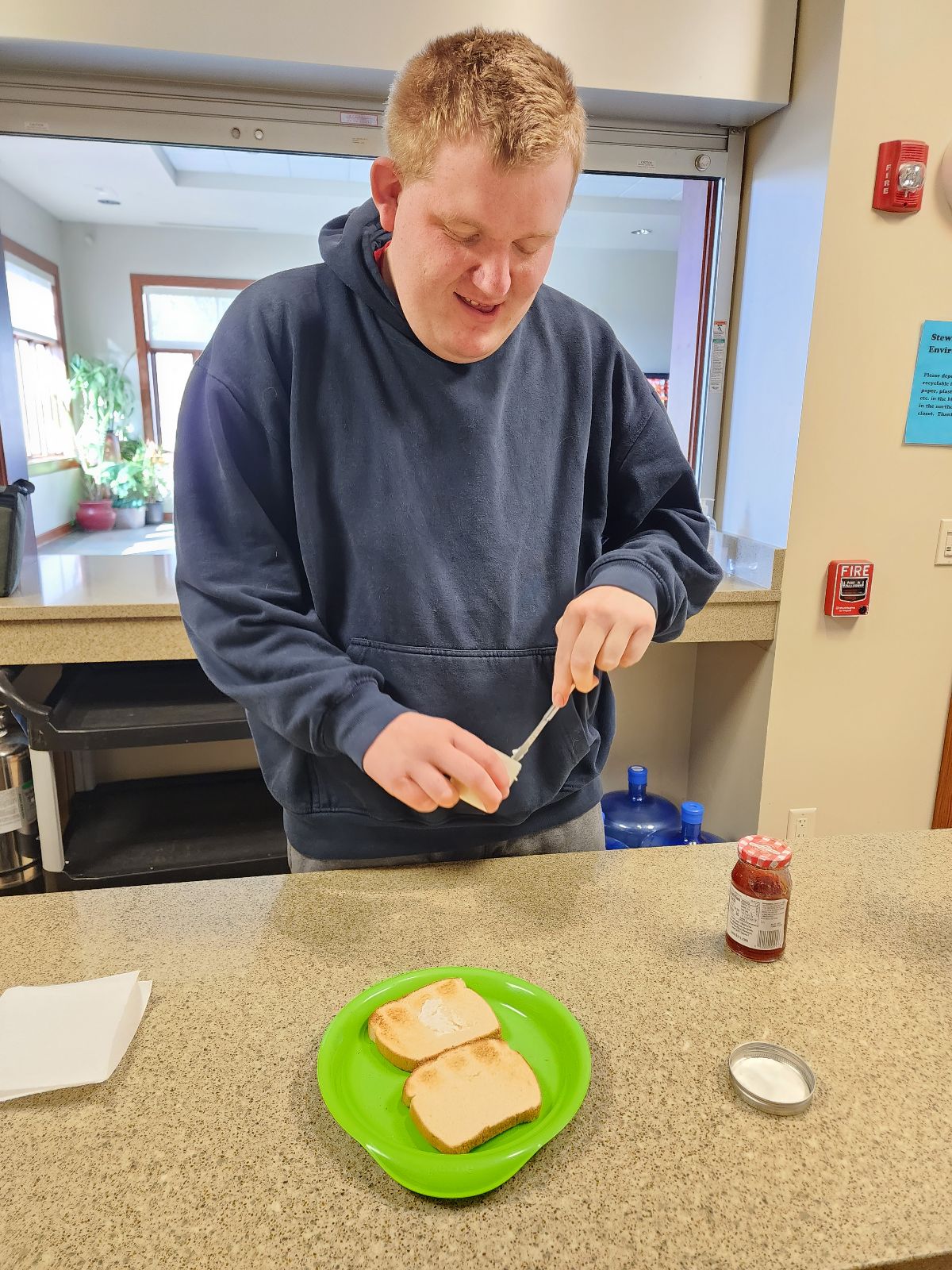
Personal Life Skills:
Acquiring and practicing personal life skills empowers autistic adults to enhance their independence, confidence, and overall quality of life in diverse community settings. Ongoing support, guidance, and opportunities for skill development are essential for fostering success in these areas, enabling individuals to navigate and thrive in their communities with greater ease and fulfillment.
- Household Maintenance: Learning to perform household chores, such as cleaning, laundry, and basic repairs, fosters independence in maintaining a living space.
- Money Management: Learning basic financial skills, such as budgeting, banking, and handling money transactions, helps individuals manage their finances independently.
- Shopping: Developing skills for grocery shopping, comparing prices, making purchases, and managing shopping lists promotes independence in daily life.
- Meal Preparation: Mastering basic cooking skills, meal planning, and nutrition knowledge enables individuals to independently prepare healthy and balanced meals.
- Time Management: Learning to prioritize tasks, manage workload efficiently, and meet deadlines enhances productivity and performance in various job settings.
- Lifelong Learning: Cultivating a mindset of continuous learning and professional development enables individuals to adapt to evolving job requirements, acquire new skills, and pursue career growth opportunities throughout their careers.
Vocational Training
Mastering vocational training skills empowers autistic adults to enhance their employability, job satisfaction, and career advancement opportunities. Supportive vocational training programs, mentorship, and tailored workplace accommodations play vital roles in facilitating skill development and success in the workforce, ensuring individuals can thrive based on their unique strengths and challenges.
Workplace Vocational Training Skills:
Functional Vocational Skills: Autistic adults benefit from various skills to support their wellness and health. Some of these include:
- Job Readiness: Understanding workplace expectations, including punctuality, dress code, and professional behavior, prepares individuals for success in the workplace.
- Task Completion: Acquiring skills to break tasks into manageable steps, follow instructions accurately, and complete tasks independently contribute to job performance and satisfaction.
- Workplace Communication: Developing effective communication skills for interacting with colleagues, supervisors, and customers promotes productivity and positive work relationships.
- Social Skills in the Workplace: Understanding workplace norms, etiquette, and professional behavior facilitates integration into the work environment and fosters positive relationships with colleagues.
- Self-Advocacy: Advocating for accommodations, support, and adjustments that meet individual needs and promote success in the workplace empowers autistic adults to thrive in their chosen careers.
- Technical Skills: Acquiring technical skills relevant to specific job roles or industries, such as computer proficiency, software applications, or equipment operation, increases employability and job performance.
- Problem-Solving: Developing problem-solving skills helps individuals navigate unexpected challenges and find solutions to everyday problems
- Flexibility and Adaptability: Adapting to changes in tasks, schedules, or work procedures demonstrates resilience and facilitates adjustment to different work environments.

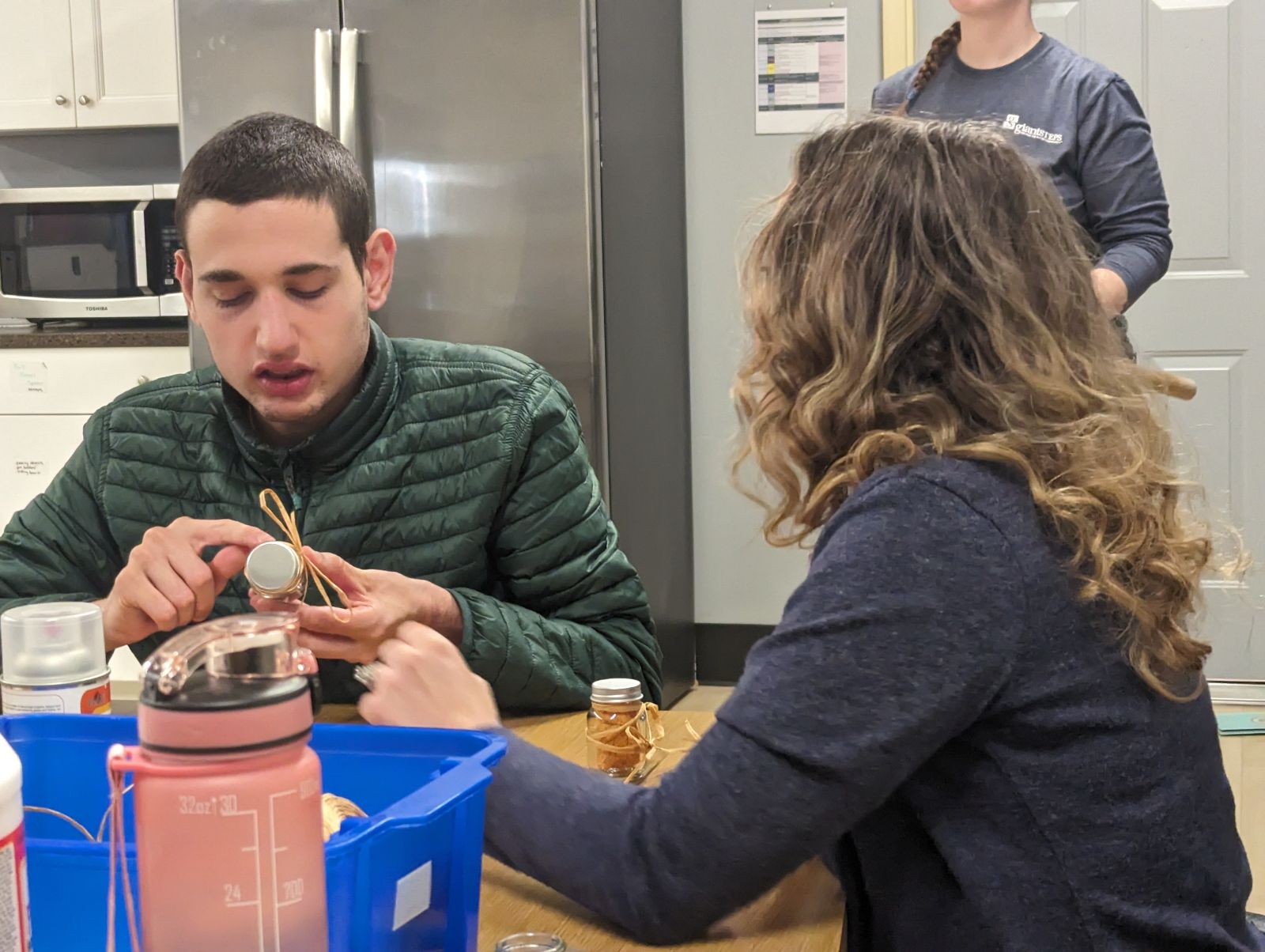
Community Outings
One of our primary goals is to offer Canopy participants the opportunity to engage with the local community. We believe connecting with businesses and organizations in the area is crucial for our participants and the community members.
Canopy participants engage in the community in the following ways:
- Volunteering at local organizations or events.
- Participating in community service projects, such as clean-up initiatives or food drives.
- Attending community events, such as festivals, markets, or cultural celebrations.
- Contributing to community arts and cultural programs through performances, exhibitions, or workshops.
- Participating alongside community members in recreational activities, such as sports leagues, fitness classes, or outdoor excursions.
- Building relationships and social connections with neighbors, peers, and community members through informal gatherings or social events.

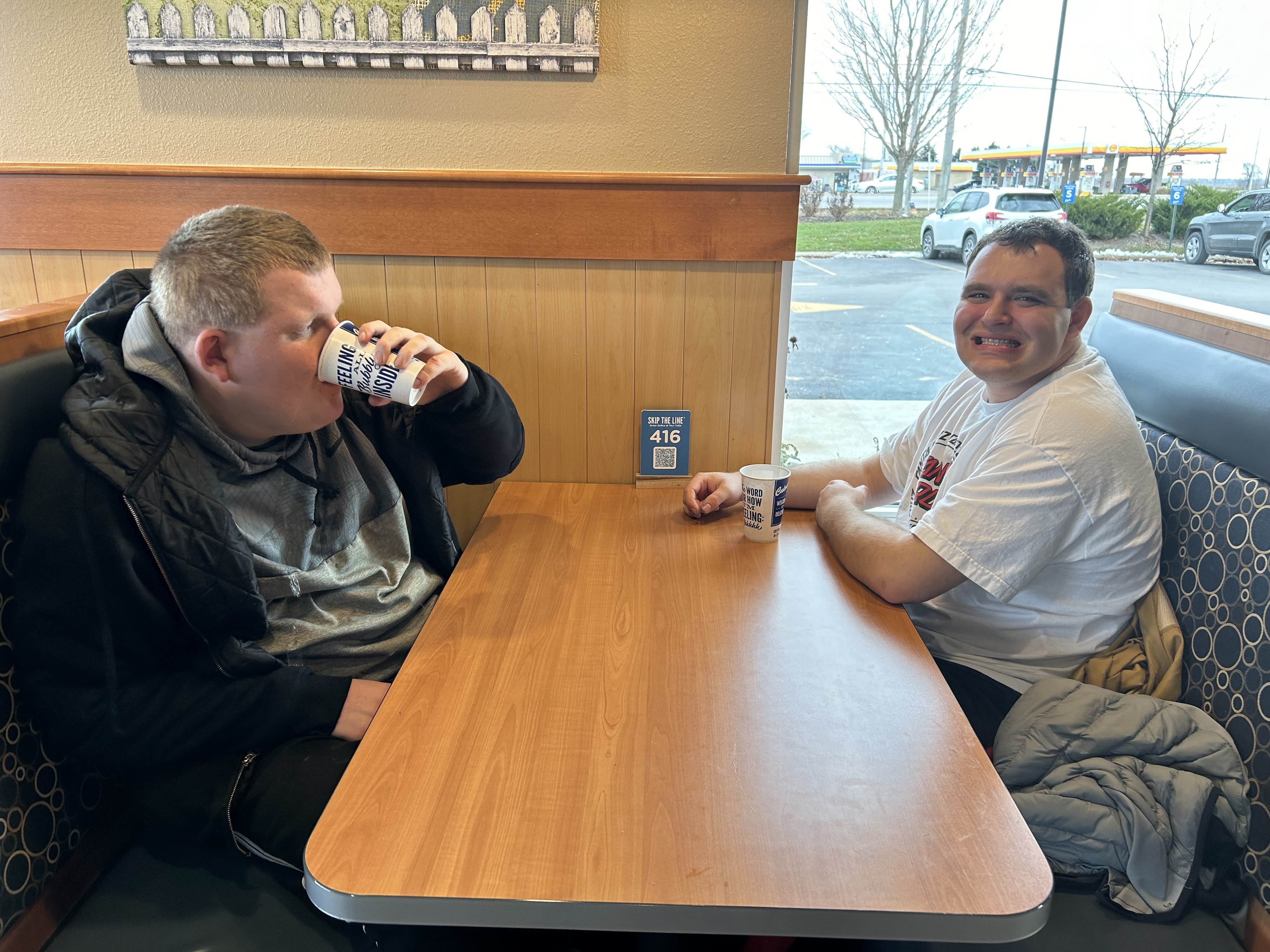
Community Life Skills:
- Navigating Transportation: Understanding how to use public transportation, including buses, trains, or rideshare services, is essential for independent mobility.
- Emergency Preparedness: Understanding how to respond to emergencies, such as calling emergency services or following evacuation procedures, ensures individuals' safety and security.
 Donate
Donate 






